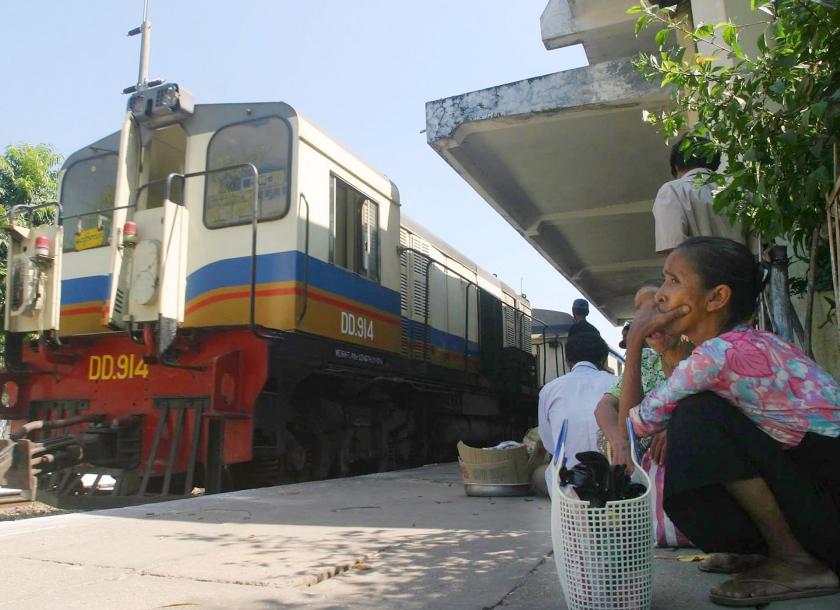In order to develop the country’s transport sector, Myanmar demands US$ 60 billion in investment in the next 15 or 20 years
26 กันยายน 2560
THE country’s transport sector demands US$60 billion in investment in the next 15 or 20 years, according to the Ministry of Transport and Communications. Efforts to develop railways as well as the aviation and maritime infrastructure are frustrated by the lack of investment.
U Win Khant, permanent secretary of Ministry of Transport and Communications told The Myanmar Times during the sideline interview at Myanmar Global Investment Forum that the three existing Kawthaung airport in Tanintharyi Region, Mawlamyine airport in Mon State and Heho airport in Shan State are going to be upgraded through a public-private partnership (PPP) system. The Myanmar Global Investment Forum was organised by Euromoney on September 12 and 13 in Nay Pyi Taw.
Public-private partnerships between a government agency and private-sector company can be used to finance, construct and operate projects, such as night markets and public road networks.
The Asian Development Bank (ADB) and Myanmar government have approved their country partnership program. The first strategy in partnership covers the period from 2012 to 2016, and the second phase will be implemented from 2017 to 2021.
The ADB and JICA have pointed out the budget is very low and we need at least a budget three times of this size to meet our targets outlined by the transport master plan.
- U Win Khant, Ministry of Transport and Communications
Infrastructure is the most important area in both strategy programs, which serves as the major topic of discussion when ADB president met President Htin Kyaw and State Counsellor Daw Aung San Suu Kyi.
“We conducted a few diagnosis studies in order to understand the market size.
“According to our study, which was done ... in 2014-15, demand for investment in infrastructure amounts to $120 billion, covering transport, energy and power as well as telecommunications. Splitting that amount, half of the total, i.e. 60 billion, is needed for investment in the transport sector.
“For the time period we are looking at is up to 2030.
“Energy and power require 40 billion and telecom 20 billion,” said Bui Duy Thanh, principal energy economist at the ADB in one of the penal sessions of the forum.
U Win Khant said, in the panel, that transport sector alone requires $60 billion in the next 15 or 20 years.
“The ministry still has difficulties to implement the master plan due to budgetary constraint.
“The ADB and JICA have pointed out the budget is very low and we need at least a budget three times of this size to meet our targets outlined by the transport master plan.
“With the very poor infrastructure, very limited budget and weak legislations, the one and only way to carry out the [transport] master plan is through PPP,” he commented.
The development of road networks has seen progress but railways, aviation and maritime sectors are still hindered by the lack of investment, according to the permanent secretary. The latter three are in need of enormous financing.
According to Bui Duy Thanh, the ADB recognised the importance of PPP for the country, given the demand for investments and the limited fiscal capacity of the government.
At present, the multilateral institution is working on setting up an institutional framework regarding regulation of PPP projects. The organisation drafted the policy paper by the end of 2016 and has already submitted the paper to the government, which has taken the submission forward for considerations.
“The policy would involve having the stable process to develop the PPP framework, prioritising which infrastructure projects to be allocated for PPP purposes,” Bui Duy Thanh explained.
(The Myanmar Times: https://www.mmtimes.com/news/lack-investment-throttles-transport-infrastructure.html )











